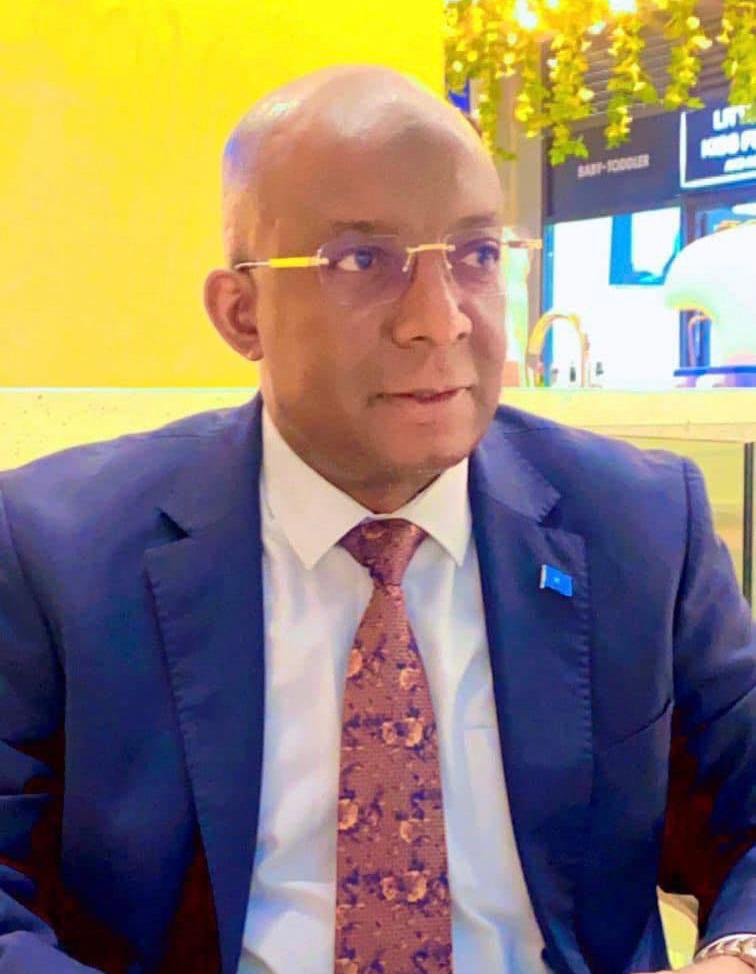By Daud Aweis
East African Community Heads of State are about to render their verdict on whether Somalia will become the eighth member of the regional bloc that currently comprises Burundi, Kenya, Uganda, Rwanda, Tanzania, the Democratic Republic of Congo and South Sudan.
In June this year, EAC Heads of State adopted the Report of the Verification of the Application of the Federal Republic of Somalia to join the East Africa Community during the 21st Extraordinary Summit held in Bujumbura, Burundi. The compilation of the report was the culmination of a 6-months-long verification exercise to ensure Somalia’s readiness and suitability to join the bloc. In order to be verified, Somalia had to prove that it upholds the rule of law, governance, and respect for human rights as well as its record as a hub for trade that promotes regional trade and development.
In August, on the instructions of the Heads of State, experts from the seven EAC states, the EAC Secretariat and Council, Somalia, the East African Legislative Assembly, and the East African Court of Justice congregated in Nairobi, Kenya for nine days of negotiations regarding Somalia’s entry into the regional body. Following these deliberations, EAC Secretary-General Peter Mathuki expressed confidence that Somalia’s request for membership would be approved.
It has been a long wait for Somalia which first put in a bid to join the EAC in 2012. The quest to join the East African Community has been a top priority for President Hassan Sheikh Mohamud since his re-election in 2022. If approved, it would be the fulfilment of an 11-year dream and years of arduous work and processes.
The approval for accession would bring good tidings not just for Somalia, but the East African region as a whole. Somalia has already enjoyed the benefits that would come with joining EAC, with most member states having provided troops who joined the ranks of the African Union Mission in Somalia – AMISOM (currently ATMIS) – a peacekeeping mission operated by the African Union with the approval of the United Nations Security Council. East African nations have been brothers-in-arms in the war against terror. There’s no doubt that our brothers and sisters in the region will play a significant role in rebuilding a peaceful, stable Somalia after decades of strife and unrest.
Somalia has much to gain from joining the East African Community. It would benefit from regional infrastructure projects that include roads, railways and energy projects. These projects would boost inter-connectivity within East Africa and also spur economic growth and development. It would also open doors for more investment and capital mobility. The East African Community boasts a population of more than 200 million people, a ready market for trade in goods and services.
Membership within the East African Community would also allow for free movement of people and commodities in and out of Somalia. This would be a significant boost for the economy as there are already hundreds of thousands of Somalis trading across the region. On the socio-cultural level, people-to-people exchanges have the potential to not only raise the standards of living for citizens but will also go a long way in achieving the dream of integration.
Somalia looks forward to knowledge-sharing on best practices in democracy, good governance, law-making, gender equality and environmental stability. Our country has much to learn as it seeks to stabilize after years of turmoil. East African countries have continued to stand with President Hassan Sheikh Mohamud’s quest to eliminate the Al Shabaab by the end of this year and for that, we remain grateful.
On its part, the East African Community will enjoy an expanded trade market with the inclusion of Somalia’s population of more than 17 million people. This will boost trade and the GDP of East Africa as a whole. The region stands to reap massive benefits from the exploitation of blue economy resources of Somalia which has the longest coastline in Africa. Somalia also possesses vast natural and mineral resources that could benefit its neighbours.
Somalia has massive agricultural potential that can be exploited for the good of the entire East Africa. Today, agriculture contributes 65% to the GDP and is the biggest employer. Exploitation and modernisation of agricultural resources would go a long way in addressing not only Somalia’s food insecurity issues, but those of the entire region. East African nations will also benefit from Somalia’s robust, youthful population.
Politically, the EAC’s increased membership would increase its influence in the region and amplify its voice in African and global politics. Somalia would be able to have a say in the running of East Africa’s affairs as well as in the Horn of Africa. Having Somalia on board would also help address security challenges in the Horn of Africa.
There has been criticism by some that Somalia is not ready for accession to the East African Community, but the facts speak for themselves. The team of experts that conducted the verification declared Somalia more than fit, with the adoption of their report by the Heads of State being a clear indication of their confidence. The naysayers would wish that Somalia does not rise out of the ashes of its dark past. That we do not develop. That we do not take up our space in regional, African and global politics. But the time is now. Somalia cannot develop in isolation. President Hassan Sheikh continues to prioritize pursuits that will raise the standard of living of each and every Somali.
In Kiswahili we say, ‘UmojaniNguvu’, which meansUnity is Power.If Somalia wants to go far, it must not go alone. We must join hands with other countries in the region and prosper together. We look forward to being named East Africa Community’s newest member end of this month of November and usher in a new era of hope, stability and mutual cooperation and development. We look forward to playing a part in meeting EAC’s Vision 2050 of optimizing utilization of the region’s resources to accelerate productivity and the people’s well-being.
Viva, EAC, VIVA!
The author is the Minister for Information, Culture and Tourism
in the Federal Government of Somalia





